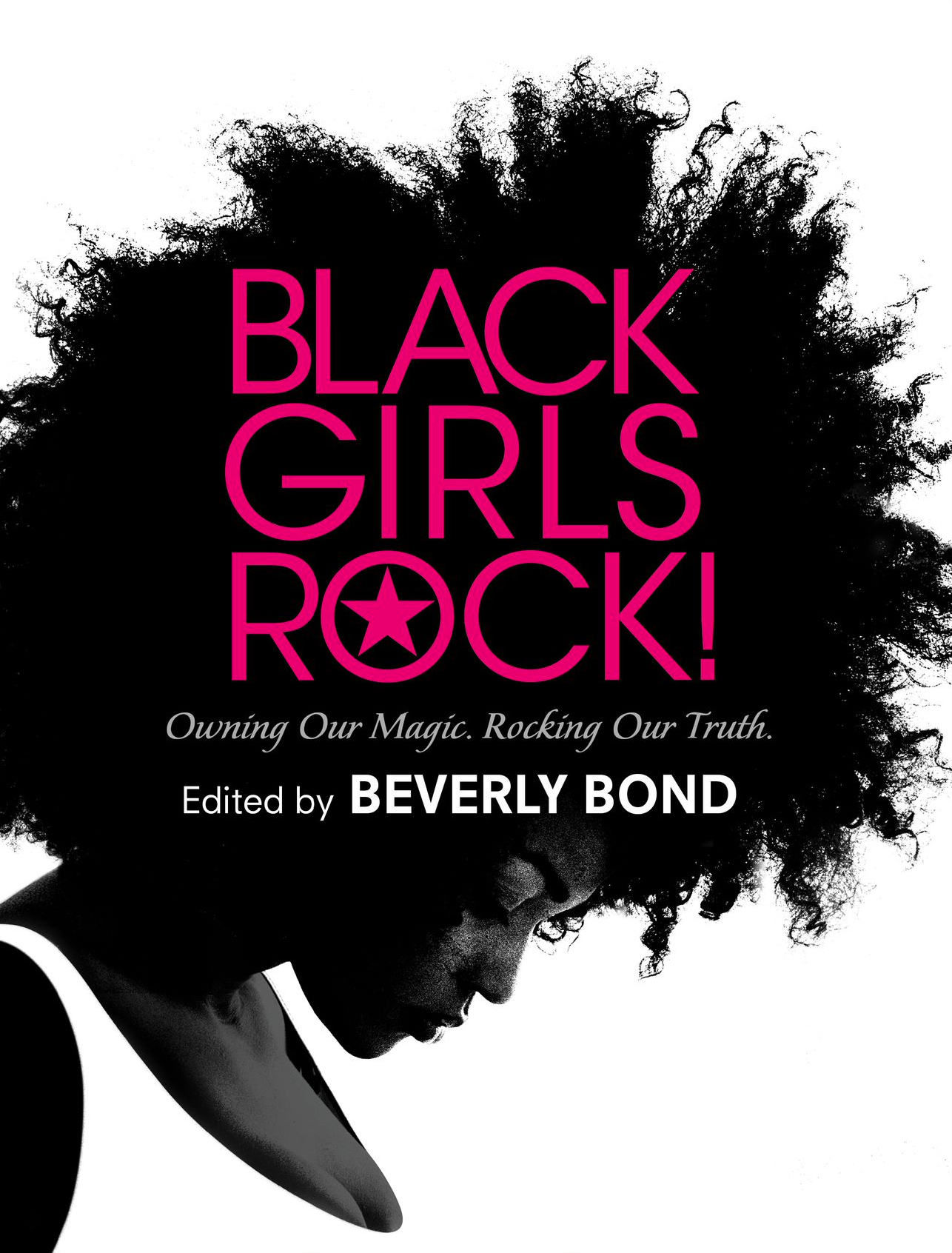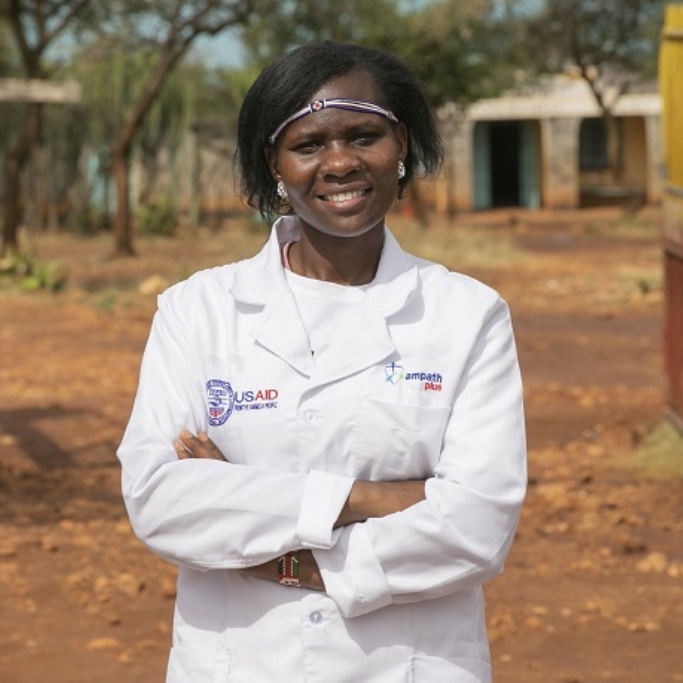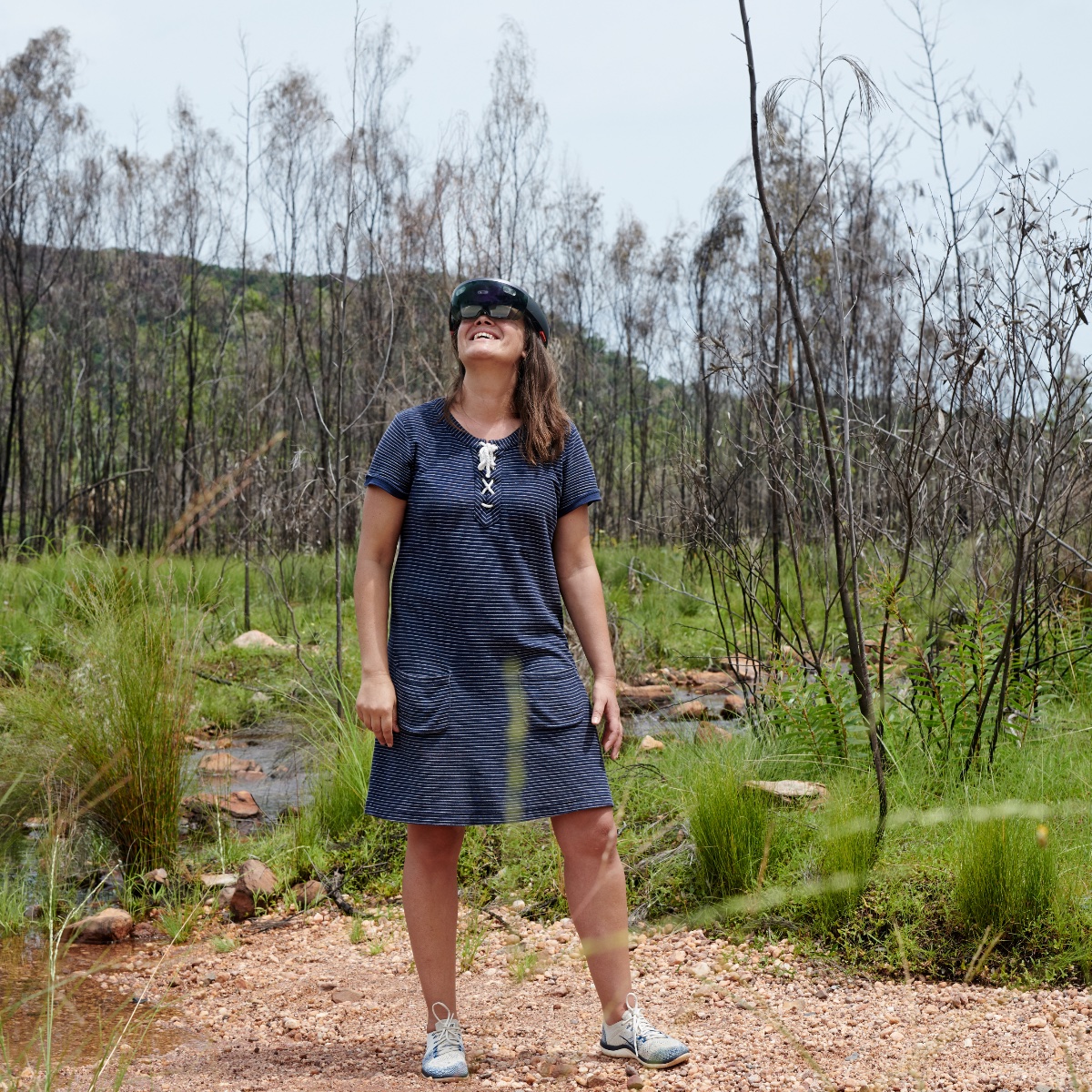
Ever wonder who’s shaping society today?
Creating, innovating, leading …
And bringing the world forward.
It’s her.
Where women rise, everyone benefits.
And when it’s her, it’s all of us.

“Gaming saved my life as a kid. My goal was to create a world that embraces the weird. It’s about building a community where everyone is welcome and everyone has the opportunity to grow.”
This is Letta J. and she’s changing the game for women and gamers from underrepresented communities. As the co-founder of COEXIST, the largest gaming community in Brooklyn, she’s on a mission to turn players into creators—with development tools and classes for coding, sound design, and music composition.

“I have a responsibility as a creator of tech to protect the people who use it. If you aren’t leading with a lens of empathy and vulnerability, you aren’t going to see the full picture. Representation matters, it’s imperative to cultivate a diverse network across disciplines, and challenge barriers and institutional inequities across our communities. It’s the only way for us to move forward. That’s what I fight for every day.”
Meet Ana Arriola, Microsoft’s Director of Product Design for Cloud + AI Studios. As a source for intersectional and authentic design, they’re creating human-centric product experiences – ensuring thoughtful approaches that extend and empower human curiosity.

“I know firsthand how limiting a language barrier can be. Using technology, I’m able to teach people English and give them the opportunity to achieve their dreams. And I started all of this at 75. You can do anything, don’t let anyone else tell you otherwise.”
When you think grit, think Florence Phillips. When most people retire, she opted for reinvention—and volunteered with the Peace Corps before launching her own nonprofit. At 90 years old, she’s still running the English Language Learners In-Home Program to help more than 5000 immigrants and refugees learn English.
Sparking
a movement

Meet Beverly Bond →
“Of the many hats I wear, I really cherish my role as a mentor. I am truly blessed, honored and immensely grateful to help nurture precocious ‘RAD’ teen-aged ‘brown skin girls’ at a critical growth period and time of transition in their lives.”
— Beverly Bond, DJ and founder of BLACK GIRLS ROCK!

Join us for the BLACK GIRLS ROCK! Book Club, a new initiative created in partnership with Microsoft to build community and promote girls’ empowerment, literacy, and leadership. Each month, the book club will highlight a thought-provoking book for the community to read and discuss, and a live virtual event featuring the author in conversation with a BGR! alumna. There’ll also be interactive workshops for students based on themes in the books.
Challenge
the norms

Meet Esther Cheebos →
Photo credit USAID – Irene Angwenyi
“I witnessed my mother enduring a life of domestic violence, my sister being forced into marriage, and I saw my girlfriends lose their childhood overnight. I know my purpose is to create a safe environment for all women.”
— Esther Cheebos, Clincal Officer at Ampath Plus

Meet Kal Viswanathan →
“I tell [my students], ‘I’ve been in the place you’ve been, and this is what it took to get out of it and find success… And that’s exactly what I am going to teach you here.’”
— Kal Viswanathan, founder of Kal Academy
Challenge
the norms

Meet Khulile Vilakazi-Ofosu →
“Grown women come up to me and say, ‘Where have you been all our lives? Do you know what it would have done for my self-esteem if I had grown up with a doll that looked like me?”
— Khulile Vilakazi-Ofosu, founder of the Sibahle Collection

Meet Natassia Katopodis →
“If we can empower just one young woman to become self-sufficient, then she can go on to empower her community.”
— Natassia Katopodis, Business Applications Manager
Invest in
ourselves

Meet Sandee Kastrul →
“As women, we're really good at setting the table for other people to eat—we feed ourselves last. We take care of everybody else, and then if there's something left over we take care of ourselves.”
— Sandee Kastrul, founder and CEO of i.c.stars
Take action

Meet Donna Hylton →
“I couldn’t have influenced my daughters the same way if I didn’t first take advantage of the things I was asking them to take advantage of. You have to be the first partaker. I think my daughters have graduate degrees because they saw mommy get two master’s degrees.”
— Donna Hylton, professor and founder of STEAM Train

Meet Sarah Krasley →
“When I think about workers who've benefited from our training program, it makes the sacrifices worth it ... We see this workforce not as a labor pool, but as real people who have skills and potential.”
— Sarah Krasley, founder and CEO of Shimmy Technologies
Take action
Understand
our legacy

Meet Meet Mikaela Jade →
“For me culturally, we talk about legacy as our obligations to the next generations. But that’s a really important thing for all humans to think about—what kind of ancestors do we all want to be to our descendants?”
— Mikaela Jade, founder of Indigital
Understand
our legacy

Meet Kriti Sharma →
“If you're building a new product, don't just think about the majority of the population. Think about the outliers or people who may be most at risk of being disadvantaged from the tech. That's something we all can do.”
—Kriti Sharma, founder of AI for Good
Take action
Give back to organizations that empower her
Donate to nonprofits that support women leaders, working mothers, and others around the world simply by searching with Microsoft Bing.
Start giving →
















